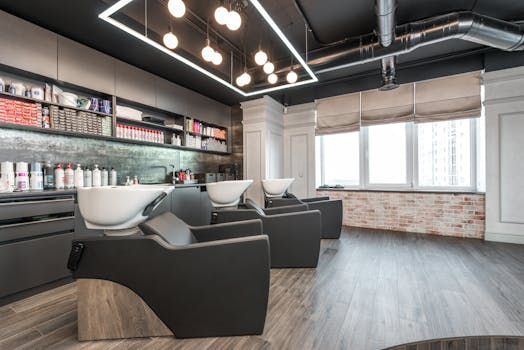Berlin, Germany: Essential Services for New Residents

Healthcare Services
Germany boasts one of the best healthcare systems globally, and Berlin is no exception. As a new resident, obtaining health insurance is mandatory. You can choose between public (gesetzliche Krankenversicherung) and private (private Krankenversicherung) health insurance. Public health insurance is generally more affordable and covers a wide range of medical services.
Registering with a general practitioner (Hausarzt) should be your first step. They will be your primary contact for medical issues and can refer you to specialists if needed. Additionally, Berlin has numerous hospitals and clinics, including the renowned Charité – Universitätsmedizin Berlin, known for its cutting-edge research and medical care.
Pharmacies (Apotheken) are widespread throughout the city, easily identifiable by the red 'A' sign. Most pharmacies operate during regular business hours, but there are always some open 24/7 for emergencies.
- Public Health Insurance: More affordable, broad coverage
- Private Health Insurance: More expensive, often faster service
- General Practitioner: First point of contact for medical issues
- Charité – Universitätsmedizin Berlin: Leading hospital in research and care
Housing and Accommodation
Finding a place to live in Berlin can be challenging due to high demand. Start your search on popular websites like ImmobilienScout24 or WG-Gesucht. Whether you're looking for an apartment or a shared flat (WG), these platforms offer extensive listings.
When renting an apartment, be prepared to provide proof of income, a SCHUFA credit report, and references from previous landlords. It's also common to pay a security deposit equivalent to three months' rent.
Berlin's neighborhoods each have their unique charm. For example, Kreuzberg is known for its vibrant nightlife and multicultural vibe, while Prenzlauer Berg is family-friendly with plenty of parks and cafes.
Public Transportation
Berlin's public transportation system is efficient and comprehensive, comprising buses, trams, U-Bahn (underground), and S-Bahn (suburban trains). To get started, purchase a monthly pass from the BVG (Berliner Verkehrsbetriebe) website or at any station kiosk.
The city is divided into fare zones A, B, and C. Most residents will need an AB ticket unless traveling to outer areas like Potsdam. The BVG app is handy for real-time updates and route planning.
| Ticket Type | Cost | Validity |
|---|---|---|
| Single Ticket (AB) | €3.00 | 2 hours |
| Monthly Pass (AB) | €86.00 | 1 month |
| Yearly Pass (AB) | €761.00 | 1 year |
Legal Documentation and Registration
Registering your address (Anmeldung) at the local Bürgeramt is one of the first steps after moving to Berlin. You'll need your passport or ID card, rental contract, and confirmation from your landlord (Wohnungsgeberbestätigung). This registration is crucial for opening bank accounts and signing up for utilities.
If you're planning to work in Berlin, obtaining a tax ID number (Steueridentifikationsnummer) is essential. This number will be issued automatically after your Anmeldung but can take up to two weeks to arrive by mail.
Banking Services
Opening a bank account in Germany is straightforward but requires certain documents like your passport or ID card, proof of address (Anmeldung), and sometimes proof of income or employment.
The major banks in Berlin include Deutsche Bank, Commerzbank, and Berliner Sparkasse. Online banks like N26 are also popular due to their user-friendly mobile apps and lower fees.
Utilities and Internet Providers
Setting up utilities such as electricity, gas, water, and internet is essential once you've secured accommodation. Vattenfall and E.ON are among the main providers for electricity and gas in Berlin.
For internet services, popular options include Telekom, Vodafone, and 1&1. Comparing different packages online can help you find the best deal based on speed requirements and budget.